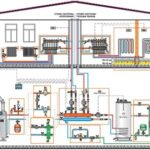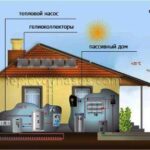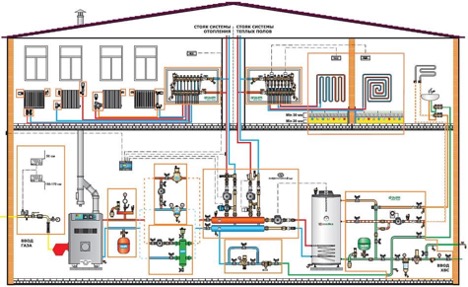Calculation of the volume of a heating system for a private residential building: how to calculate
Calculating the volume of a heating system for a private residential building is a key step in ensuring efficient and economical use of thermal resources. The basis for this calculation is an understanding of the specific thermal energy consumption. This is the amount of energy required to maintain a comfortable climate in the house per unit area.
Accurate calculation of the specific consumption of thermal energy for heating allows you to determine the optimal volume and power of the heating system. And this is important to prevent both unnecessary costs and insufficient heating of the premises.
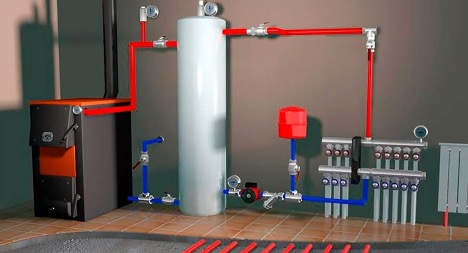
The content of the article
Calculation of the volume of the heating system: main parameters
In order to calculate the volume of the heating system in a private residential building, a number of key parameters should be taken into account. They include:
- Area and volume of heated premises.
- Thermal insulation characteristics of the building.
- Climatic conditions of the region.
- Standard heat load indicators.
- Individual heat needs.
- Heating system efficiency.
- Estimated heat loss.
Methodology for calculating the specific consumption of thermal energy for heating a building
To calculate the specific heat energy consumption for heating a building, you can use the following sequence of actions:
- it is necessary to multiply the total area of the house by the standard heat load indicator for a given region;
- correction factors reflecting the level of thermal insulation, type of windows and other factors must be included in the calculations;
- Based on the data obtained, the volume and power of the heating system necessary to ensure a comfortable climate in the house is calculated.
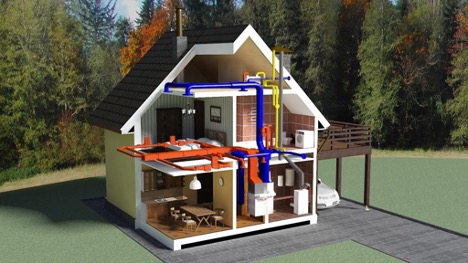
Practical aspects of choosing a heating system
After calculating the specific thermal energy consumption and determining the required volume of the heating system, it is important to take into account several practical aspects:
- Selecting the type of heating system. Depending on individual needs and operating conditions, this can be water heating, electric or combined.
- Efficiency and economy. The efficiency of heating equipment and its compliance with the calculated volume of thermal energy should be assessed.
- Installation and maintenance. It is necessary to take into account the complexity of installation and maintenance of the selected heating system. And also the possibility of its modernization in the future is necessary.
Thus, careful calculation of the specific thermal energy consumption for heating a building and the volume of the heating system is the basis for creating an effective system. It is important for the efficiency and durability of its operation in a private residential building.
Mistakes when choosing a heating system and how to avoid them
Mistakes when choosing a heating system can lead to a number of negative consequences. This includes inefficient use of energy and increased heating costs. It is also a discomfort in the living space. To avoid them, it is important to pay attention to several key aspects.
The first aspect is the incorrect choice of heating equipment power. A system that is too powerful will result in excess energy consumption and increased costs.While an insufficiently powerful system will not be able to effectively heat the house. To avoid this error, it is necessary to accurately calculate the required system power. It is also important to take into account the area of the house, its thermal insulation characteristics and the climatic conditions of the region.
The second important aspect is ignoring the quality of the house's thermal insulation. Even the most efficient heating system in certain cases will not be able to provide the required level of comfort. For example, if heat escapes through insufficiently insulated walls, windows or roof. Before installing a heating system, you should ensure that the building's thermal insulation is in good condition.
The third aspect is related to the choice of the type of heating system. Not all systems are suitable for every home. For example, electric heating may be less profitable in regions with high electricity rates, while gas heating requires a gas pipeline. It is important to choose the type of heating system that will best suit individual conditions and requirements.
The fourth aspect concerns the incorrect accounting of future maintenance and repair costs. A system that is inexpensive to install may later require significant maintenance and repair costs, resulting in a less economical solution. It is important to consider the full life cycle of a heating system, including the cost of operating and maintaining it.
By taking these aspects into account, you can make an informed choice of heating system that will provide efficient and economical heating for your home.

